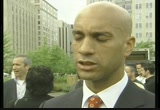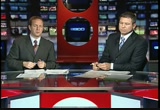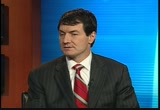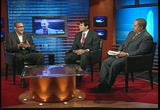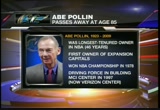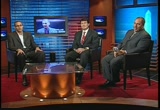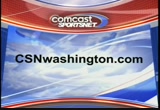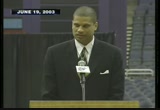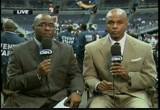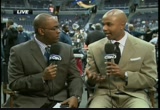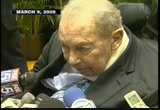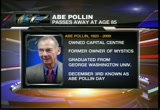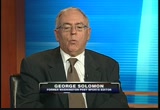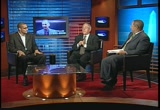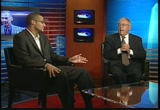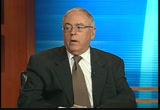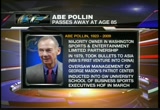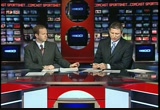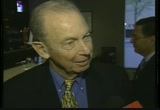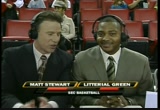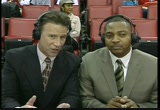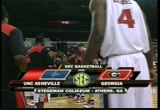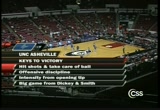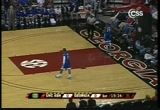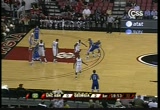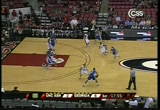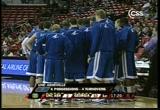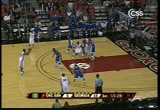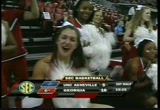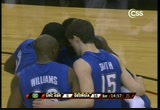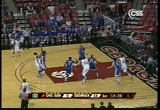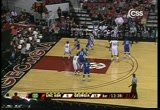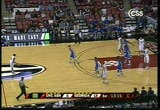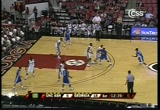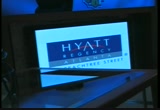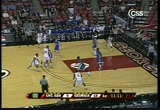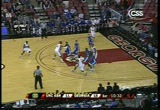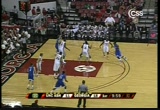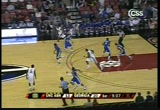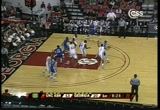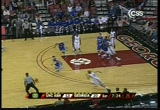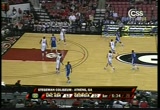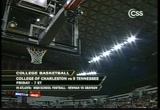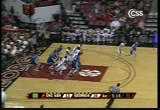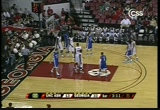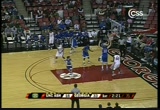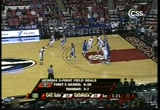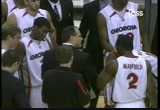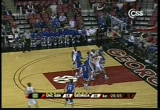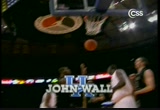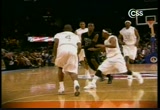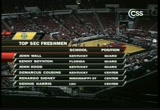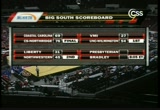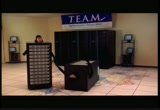tv U.S. Senate CSPAN November 24, 2009 5:00pm-8:00pm EST
5:00 pm
12,000 people, and the 500,000 people injured, and the 5,000 killed every year. and i say what are we doing about that? it all comes back to technology. yes, let's do an education. i'm all for that. but this is not drinking is a compulsion. drinking is an addiction, habit, drinking is for nonteenagers, whatever. this covers everybody. :
5:01 pm
and i could be. so i'm a technology part, i don't think we have time to waste on this. i suggested mnu pulled me up short, mr. chairman and correctly. and i used the idea somehow that electronic impulse would go out, everything would be shut down and then you brought up of facts or somebody brought up the fact that well, somebody needs help you may need to call 911, i checked with ranking member, neither of us ever called 911 in our entire lives. that doesn't tell you anything. a lot of people have to do that. i can't solve that problem right
5:02 pm
now. i also know that people are using their landmines as much because of having a landline and having a cell phone are more than people can afford often. so landmines are going down about six to 8% a year in their usage in this country and you know that, mr. chairman. okay so that means they're using their cell phones. so that means the only way they can call us by using their cell phones. so they're calling people they have no idea where those people are, but they know they're going to get it because they have their cell phones because everyone always has their cell phones in their pocket or on their belts. and that brings me up a bit short because the cell phone can be answered by saying the cell phone is not currently available for usage because the drivers driving or something of that sort. i cannot believe we cannot do
5:03 pm
the technology. look, we're talking about carbon capture. i think we can get all the research done in three years. that's a lot more complicated than what you're talking about. i'm very glad that ford motor company is doing something. i'm also even gladder that secretary lahood thinks it's a distraction, just a fact what they're doing is a distraction. i like that attitude. that's the way i come out of. as a father and a grandfather. i don't know why we can't come up with technology that disables texting machines and cell phones and then we have to come up with a counter technology which enables them, provided everybody hasn't been killed to be able to dial 911. and, you know, i'm sorry i'm going to be three hours late for your parents are worried. that doesn't count. that is out, that is out.
5:04 pm
that's distracting, can't do that. emergencies you have to take care of. technology can solve this problem and we can educate people. i view as we got to be the technology. and i don't really give a hoot about states rights or federal rights on this one. i give a hoot about results. and i keep thinking of those 800 number 12,000 people right now than speaking. and we're not doing anything about it. reactions please. >> go ahead, mr. chairman. >> or needs to be the sense of urgency that you described on this issue. i think if i may say the holding this hearing today and shining light on this issue will itself save lives. and i think what you've done it this hearing is issued a challenge to innovators to develop technologies that will help solve this problem without causing other ones. >> if i'm doing that, i'm not aware. if i'm doing that successfully, i'm glad.
5:05 pm
you are in your position because you detect knowledge he. john holderness in his position because he does technology. and we have to be able to come up with something that works well we educate people so that the technology can be, you know, let's used. i think we have to have an answer likely. >> well, we agree with you, mr. chairman. and we are ready to work with you on your legislation and we hope legislation passes. we're going to do our part at d.o.t. by the enforcement that we can do, but we are very grateful to you for all of you, for the senators who came to our distraction summit, for the ones that have taken an interest, for the bills that have been introduced. it's all part of this louche in. look, i'm off to mistake. i think at the end of the day will find ways to save lives and save injuries by getting cell phones out of the hands him a particularly of teenagers. this is an epidemic among
5:06 pm
teenagers. teenagers are hooked on their cell phones and they're hooked on texting. and parents are part of the problem. >> and every businessman, everybody in politics, everybody who carries on who does anything in life is hooked on cell phones and is hooked on texting to a somewhat expand, although i agree with senator dorgan and becomes more of a problem when it becomes the foot i'll feel because of the length of the transaction. that's what i think is different than drunk driving. >> look at, i use .08 and seat belt as an illustration to say that we can solve it. both of those proved it. they did prove it. you don't get a slap on the back and sent home if you're about .08 anymore. i'm not the way was ten years ago. and if. and if you get stopped and inventors the bug on ten years ago, and you got a ticket for speeding, but you did not get a ticket for not having a seat belt. today you do and today you don't get sent home if you're about
5:07 pm
.08. that's where want to be with distracted driving. we will get there with your help, the help of congress, d.o.t., and lots of other stakeholders around the country, including parents who lost children and grandparents who've lost children. they're the most devastated by this. and i can tell you there's a whole crowd of people out there in america that are ready to be helpful to you and to us to solve this. >> so who does the technology and then i'll shut up? who does the technology? whose responsibility it? are we going to wait on detroit to do it or the chairman of the it? the secretary of transportation to do it, who is going to do this? >> look, mr. chairman, if you wanted to get into the technology business i'll give it a try. we can did in the enforcement business, the rule-making business, but i don't often chairman wants widowhood and the technology business. >> if ray lahood comes up with a good idea in the chairman doesn't,.
5:08 pm
>> will work with you, the committee, with secretary lahood to incentivize technologies that can solve this and solve it quickly. >> i hope so. i'm sorry i say to my ranking member because you may have other questions you want answered. >> mr. chairman, i don't have further questions, but i will say that i think this has been a spirited hearing. i think people have been engaged. i think our witnesses have been very engaged and i think that we are going to make progress on this. i think we're going toass o is t one. i think it is the right mix of states rights respect, but also giving incentives. and i think it's been very project is. despite what you think. last night
5:09 pm
>> mr. chairman. can i ask just a few more questions. the other thing i was thinking in response to your call for urgency was when i was at the distracted driving summit, there was a family there for minnesota the dixon family from eden prairie and their daughter took a ride with a friend in wisconsin in college and they lost her because the other kid driving reached in for her purse and got something out and went off the road and they lost their daughter in that split second. so i think these stories and the people on that train in california across the country give us a sense of urgency. and i was also thinking about what senator wicker said and listening to that in the story of his daughter, which was a very sad and fortunately she lived. i have no idea she had a seatbelt on,, but i do know that a lot of people who survived automobile accidents survived because they have a seatbelt on. and a lot of that was those laws
5:10 pm
changed because a pressure on the national level, not just the state level. i know in the state of minnesota we're one of the last states to enact .08 and i don't think it would've happened without the federal law. in fact, we had a legislature was kind of colorful who stood up in the chamber of the house in minnesota inside if we adopt .08, harmonic constituents going to get home in the morning? okay, so luckily the world has changed since then and i know personally because my dad had three arrests for dwi and finally when he got the last one, it was in the last decade and a made a difference because the penalties were more severe and he changed his life and he's not drinking anymore and he's really doing great. that happened because of the pressure on the federal level for those stiffer penalties. and i just end with two things. one is there's been a lot of talk about teenagers and i agree with you. as a teenager and they are all the time of their texting, although she doesn't do as much as others.
5:11 pm
but i'm hopeful that we do not limit these rules. i know some states have looked at this, i think wisconsin is looking up is to limit it just for teenagers because, as the chairman has pointed out, there's issues. i've seen many politicians looking at texts who are not teenagers. and the second thing is that i just brought there, maybe secretary lahood, is this idea of the kind of enhanced penalties that we have. this would be a state issue, the state to do this, for drunk driving. for instance, if you kill someone when you're drunk is a lot easier to prove as i know from when i was a prosecutor than if you are just reckless. and it's very possible that we could do the same with texting, so that it would be a more automatic penalty. so while the texting ban is important, i also am hopeful that states will start having enhanced penalties when deaths or injuries occur as a result of texting. and maybe want to end by discussing that.
5:12 pm
>> well, look at, i think texting is a distraction for any person. it's an epidemic among teenagers. i can tell you that people my age and generations beyond me don't do a lot of texting. they may do some, but not a lot. teenagers do. and the other point is, i do think strong law enforcement and tough penalties are the answer. if you're going to enact a law, make tough penalties. in illinois, if you get caught the first time above .08, five days in jail and you lose your license for three months. no equivocation, no heirs, and, that's about it. and that's taking a lot of to drivers off the roads and saved a lot of lives. i say the tough penalties were. >> and what he also said the federal inducements and government pushing also make it? >> when the federal government
5:13 pm
said, some people will like this. i'm glad senator wicker is gone. >> this is why we are doing is right now, secretary lahood. >> when the congress said that this eliminates her demented or you will get your highway funds. people started to slow down to a speed limit was established universally. and the states that didn't, they didn't get their money, very few states to get their money. >> that's why also want senator schumer's bill. >> chairman, if i may have a moment, i am modestly the author of the 21 drinking age bill and the .0 age bill. and with the drinking age bill, the year was 1984 when we passed it. and we found out that having experienced incentive oriented opportunities for states, it
5:14 pm
didn't do a darn thing. and finally, we imposed a penalty and they came -- some of them were dragging and at the last minute and washington d.c. was one of the last to accept it. they didn't want to have that kind of control imposed on them. so when you look at these things, mr. chairman, you said that you had kind of a revelation that when talking about chuck schumer's bill, which i am also cosponsor of, but unfortunately incentives don't carry the weight. and as to your suggestion about the need to hurry up, the immediacy of the problem, we heard it from senator klobuchar and that is start the penalty routine right away. other states that we are about to render penalties if you don't put action into force.
5:15 pm
but even if we can't do that, i think there probably is a way for the department of transportation to initiate a system that says okay, as of next month, we want to know about police enforcement of these rules. and start to save people's lives. >> mr. chairman, you know what the best thing was about this hearing? no one did their blackberries during it. every one was listening. there wasn't that much. there was a minimal blackberrying at the beginning and then it went away. >> alright, i think both of you very, very much. we have our work to do and this is just -- the discussion is going on for a long time, but 812,000, as we speak, hearing is
5:16 pm
adjourned. [inaudible conversations] [inaudible conversations] >> following the senate commerce during a bill was introduced in the senate as 1938 which would provide incentives for states drivers 18 and younger from using cell phones while driving. the senate has yet to take action on the proposal. currently eight states have banned nearly all cell phone use while driving, while 18 have been texting when behind the wheel.
5:17 pm
thanksgiving day on c-span. at 10:00 eastern bill clinton is on hand to present steven spielberg with the national constitution center. also stanley greenberg and alex kostelanetz part of a panel. and from the jfk library and museum, nick burns and leslie dell on terrorism and nuclear weapons. at five, hit hop artist. thanksgiving day on c-span. >> american icons, three nights a c-span original documentaries on the iconic columns of the three branches of american
5:18 pm
government, beginning thursday night at eight eastern. the supreme court onto the american quarter. through the eyes of supreme court justices. then friday at 8:00 p.m. eastern. inside america's most famous home, beyond the velvet ropes of public tours. our position as the grand public places as well as those releasing spaces. and saturday at 8:00 p.m. eastern, the capital, the history, arts, and architecture of one of america's most symbolic structures. american icons, three memorable nights, thursday, friday, and saturday at 8:00 p.m. eastern on c-span. get your own copy of american icons. a three disc cd set. order online at c-span.org/store. >> the brookings institute hosted a discussion on the fiscal state of u.s. cities. speakers include a number of city mayors and jared bernstein, chief economist and vice president joe biden.
5:19 pm
this is almost three hours. >> i'm here today to have a very timely for them on the fiscal challenges of facing cities and metropolitan areas in the united states. and the implications for the economic recovery. as many of you know, of the standing contention of our program at berkeley and is that we are a metropolitan nation, that the national economy as a central makeup of a network of metropolitan economies. and so national economic recovery from the current downturn very much depends on the recovery of metropolitan economies. today we are going to be discussing how to largely extend the recovery of metros depends to a meaningful degree on cities and other local governments being fiscally healthy. it's not yet been covered too much in the mainstream public discourse, but given the worst recession we've seen in decades,
5:20 pm
a potentially overwhelming local government fiscal crisis is now looming on the horizon. our partners at the national league of cities have conducted a very timely survey, showing the nearly nine and ten city finance officers are reporting difficulties in meeting fiscal needs in 2009 and expect the same in 2010. the pain is widespread from foreclosures and metros like phoenix and vegas to areas like cleveland and st. louis and new york suffering losses in auto and manufacturing industries and financial services. and those places that are heavily reliant on state local aid in massachusetts, new jersey, most of the northeast. but all this local level stress has serious implications for the national economic recovery. over the next couple of years, just as the federal recovery spending trails off, continuing local government budget tightening and expenditure costs
5:21 pm
can impose a significant drag on the economy. even as it is about to turn the corner. now as we all know, when cities and suburban minister polities may cut tags, they layoff workers, they cancel vendor contracts, and to eliminate funding to nonprofit providers. all of which were directly removed from local and regional economies because numerous individuals and organizations across the metro are left with less money to spend, with salaries, supplies, and consumption. that's the dynamic facing cities and many sufferers across the country. again, to put it simply, there can't be held the national economy without healthy global and mutual economies. and that makes today's conversation to lead to combat provoking conversation on the discussion at today's cities and economy, their future prospects, and they are contributions to
5:22 pm
state and local governments. they are making tough decisions. they are being incredibly creative to reduce the carnage and we may need additional federal intervention, beyond the american recovery and reinvestment act to stakeouts reeled distraction this year. now before we turn to the rest of the day, i want to take a moment to introduce the national league of cities which is cohosting our event today. and ask them to make a few remarks. don, i've got to give you the proper introduction here as a cosponsor. gone is the executive director of the national league of cities. that is the oldest and largest national organization that represents municipal governments in this country. importantly, he has more than 35 years experience in municipal government in the public interest sector. you probably go back to which recession in the 70's or 80's when i learned some lessons from.
5:23 pm
what he is uniquely experienced to talk to us today is a thought leader on these issues. [applause] >> thank you, bruce. we're delighted to be here. as preset, the national league of cities is the oldest and largest representing cities. and indeed through a network of state municipal leagues we represent over 18,000 city, towns, and villages across the country. local governments, as preset set, and i think you are all aware are facing unprecedented fiscal challenges. this is unknown for our generation. fortunately, local elected officials are what i'd like to refer to as prudent. date knowledge that reality they confront and make tough budget decisions. and what they tried to do is maximize the service is, that is, even though they are making cuts, what they tried to do is provide services so that it seems seamless.
5:24 pm
there is however a tipping point. there is a point that as revenues are reduced, there are consequences for programs. and one of the problems is that the public often hears about the cuts. they see no changes in services and they conclude that city governments can do more if you give them life. but that doesn't work. there is a point where there's going to be consequences. now for the last 25 years, the national league of cities have them doing a fiscal survey. and my colleague, chris haney is going to give you the specifics of the findings this year. based on the studies we have done, the longitudinal studies, we have been pretty good at forecasting what the consequences are going to be after a downturn. and right now it really appears that it's going to be 18 months to 24 months before we see any kind of uptick in terms of what happens to the budgets of local
5:25 pm
governments. now for the past two or three decades, the cities have really looked to the federal government more from a defensive perspective dan and s. perspective. they've been concerned about unfunded federal mandates, which we sometimes referring to as shifted fast federalism. they are also concerned about preemption -- the federal preemption. at the same time if you go back to the 70's, city budgets had received about 17% of their revenue from federal programs. right now it's maybe 5%. so there's really been a decrease in the kind of support that local governments have received from federal government. now from our perspective, the increase in unfunded federal mandates preemption and the reduction in federal assistance reflect and unravel re- of the intergovernmental system.
5:26 pm
an inattention to win a disregard of the fundamental interdependence of local state and federal government. as bruce made pretty clear, our national economy is really the sum of the metropolitan are regional economies. making it imperative for state and local and federal government to collaborate in order to address the dramatic fiscal crisis we confront today. at this moment, we need to re-create that intergovernmental partnership that operated to to three decorated a go. our colleagues at the national association of counties suffering is in turns over ranked the federal partnership. the mayors you are going to hear from today will describe their realities as they make the tough responsible expenditure reductions to match falling revenues that they confront in their communities. at this moment, however, we again need to acknowledge that
5:27 pm
we have a federal system. a system requiring an appreciation of our fiscal interdependence. that's what we want to address today. thank you very much. [applause] >> okay, shift and shaft to federalism. whoever came up with that line deserves a bonus at the end of the year, which of course we can't pay. given the downturn. we are going to start with two experts today to focus first on the broader economy. and then really shift to the fiscal implications for cities and suburban communities. the first i were going to have steve cochrane from moody'seconomy.com. he is a manager and director there. he oversees the u.s. regional forecasting service and direct the research and development of really what is probably the leading institution right now
5:28 pm
doing this kind of work. don't get up yet. and that will be followed by chris hoene. this is from the league of cities. he's the director of the center for research and innovation mayor. he oversees a broad array of research at this organization, which does really quality independent rigorous work. and his areas of expertise include much of what we are going to talk about today, which is local and state finance federalism and local government structure. so, steve. >> thank you so much. it is a real pleasure to be here and be given the opportunity to set the stage for today's discussion. i want to divide my talk into three very short parts. first, i will give you just a very brief outlook on the u.s. economy today, what that means for the regions in the metropolitan areas around the country. second, i went to illustrate what i think are the most
5:29 pm
important risk to that outlet are right now. i'll tell you right now they will be focusing on consumer spending and on housing markets. and third, will be looking quickly at implications that they have for city fiscal condition. so, let me jump right in here. the recession is over, even though it may not feel like it's over. our estimate is that the recession did and in the month of august. the bar in the right-hand side of each of these quarters, the blue bar is our estimate and our outlook for annualized growth of real gdp for the u.s. broadest measure of the economy. we estimate that right now economy is growing at about a rate of 3% per year, although you'll see that if you look at the right-hand bar which is the green bar, that is our estimate of the contribution of federal stimulus spending to economic growth and you can see that's a good part of the economic growth today really is due to the active role the federal stimulus programs right now.
5:30 pm
5:31 pm
fragile is there isn't a whole lot of hiring going on in the economy right now. layoffs have abated and that is why show on the green line here which should be >> you can see that layoffs peaked in the first quarter. when no one had a handle on where the economy was going to go. but nobody is really hiring. there's not confidence among employers to actually go out and wrap up again. and they are just holding their own. that's one reason why productivity growth is quickly. but there is no hiring. and that is aa lowing the unemployment rate to rise even as the labor force is strengthening. you can see where the weakness is. the states are a red, it's where the unemployment has risen the highest. the unemployment rate which was usually in late '06 or early '07
5:32 pm
in compared to the latest unemployment rate. you can see it's the web coast. it is much of the southeast. and it's part of the midwest where the unemployment rate has risen the highest. if labor force wasn't shrinking, you'll see more red in ohio and indiana and wisconsin. the risk here is that the of when the unemployment raises, that means potentially there's the at least potential for improvement in wage growth bee wage growth will mean weak income growth. we can see that's evident. in fact, as the second quarter, which is our latest read on personal income growth for the states, income was down over the year. actually in every state expect in the dakotas. it was done the most on the red
5:33 pm
states. it's the west coast largely hit by houses. florida hit the houses downturn. the industrial midwest hit by the auto production. and new york which was hit by finance. those are the real three, housing, finance, that are driving the regional economic growth. as weakness in the income and labor markets in these areas generated the first risk that i mention. that's a risk of extended period of very weak. and consumer spending is week -- weak. that means weak sales tax growth. that will hit cities very hard that fend on sales taxes. it also means fairly week income taxes. that's less important for cities, and more important for states. some of that is shared down two cities as well. the first risk within the second risk relates to the housing market.
5:34 pm
if labor market continues to be very weak. that will probably lead to more pressure in terms of mortgage forclosures and weakness in housing around the country. what i show in this chart is evidence of the already strong potential for arising foreclosures in 2010. this is the pipeline, in measure for the potential foreclosures going forward. data from database that we manage with eqifax. it takes, -- the number of first mortgage loans are already on the books of lenders as realize owned property. or where there is the notice of default. you can see it has continued to rise to the third quarter. and it generates potential to the rising number of foreclosures into 20 so before that situation beginning to abate. and then if we tack on that potential for the weaker label market, it could make it even
5:35 pm
worse. and it could make it worse in these areas. this map, a map of all of the metropolitans area in the country is a map of our estimate of the potential for house price decline. this is our leading indicator. where there is no code on the metropolitan areas. it means those areas don't differ from the u.s. average. but the blue and red are those that are the heightened risk of further house price declines. it you see it's largely central in southern california. and much the northeast from washington up to new york and southern new england. these are areas where the labor market is weak, there's a lot of subprime lending, and where income growth has slowed like it has hat northeast. northeast house prices haven't fallen as much as elsewhere. they are still a bit overpriced in much of the northeast.
5:36 pm
i think the mayors with us today might be happy to know that one of the metropolitans areas have a color. that's probably because of you. [laughter] >> so again the turn around will be slow president the unemployment rate will raise, and probably somebody mid 2010 to third quarter. and that employment, payroll employment, which is the blue line. it probably won't return back to its previous peak until maybe sometime in mid to late 2012. and if you take that down to the regional level, you can see where this would have the greatest impact. the colors here indicate timing of when -- when we expect that total payroll employment will recover completely, and reach a new peak. the red states are that. and they will reach a new peak
5:37 pm
sometime after 2013. could be 2013 or 2014, in some cases as in michigan, it may never come back to where they were before. this is important to look at it. it's when employment turns to the peak. we'll see better demand for office space. new construction for office space could commence once we reach the point, and housing demand would improve, and the broader economy would look much better. once we reach the states. and that broad midsection of the country to the dakotas and into the rockies will fair the best. it has the smallest hole to climb out of. and the housing cycle and labor market cycle is much more shallow in that part of the country. local government does it best during these times in terms of
5:38 pm
trying to stablize the labor market. sometimes it's not intentional. it's simply the tax cycle and employment sake the lags as well. this chart shows that local government employment as a share of total payroll employment in the u.s. and i've split it up by education, noneducation government employment. if you add those up, both are at 11% of employment today. nearly a record peak. it hasn't been as high since the 1970s. you can see there's a bit of a pattern to it. as the economy enters recession and comings out of recession. the share derives from private payroll tends to be cut first. it's a little slower for local government to cut payroll. partly because again the tax revenue is a little bit lag. but where the peak, local government can't do this much longer. we know conditions are difficult
5:39 pm
at the local government level. right now one the key factors helping local government stay where it is is the federal stimulus spending that is being directed directly to education. the green line here shows the federal grant in state and local government specifically for education. of course we know that can't last. and that cities will have to depend more on private employs ultimately to pick up the slack and hire and get the economy going again. another problem for local government that the difficulty in terms of maintaining local payrolls comes at a time when there is a diminish for local governments. what this chart shows, the blue line up is the unemployment rate. and the green line is local revenue from -- local revenue that is rederived from state governments to change in that. what i want to illustrate, or what i want you to see or notice that when unemployment peaks,
5:40 pm
the contribution from government toward local government revenue is at its lowest. that's an easy fix for state government is to pull back from local government when state government budgets are in a difficult situation. now my data only go through '06. but it is happening right now. and it will continue to happen through 2010 at state governments themselves gap the with their own difficults, and there will be less for local governments. it's not only a near term issue for 2011. it could be more of a long-term issue because of what could be the effectiveness of the state tax policy. this charts shows the forecast as state tax revenue as a share of total u.s. gpd -- gdp. for two reasons. one is demographics. at baby boomers, their spending
5:41 pm
patterns change, and they will shift spending from purchases of durable goods, which is to a large extent drive sales tax to services which are less important in driving sales tax. and second is labor force. that is that the labor force has shrunk. and it's labor force and participation rate continues to be below historical norm. there's probably some downward rate as well. all of this indicates that we have problems in the near term, and potential problems in the longer term. it's going to generate a huge need for a lot of creativity on the part of city and local government. but also in generating new kinds of partnerships and new kinds of ways of generating and maintaining revenue at all levels of government. thank you. [applause]
5:42 pm
>> i'd like to thank you y'all for coming here today and being a part of the discussion that we've set up. i'm chris, i work for the national league of cities. i'm here to talk to you about the city fiscal state, and talk about what's happening with city finances. so this is the sort of continuing analytic part of the program, that as much you you know the thing about economist and fiscal analyst, people are good with numbers but don't have the personality to be accountants. so our apologies for all of the charts. our apologies for the accountants in the room. i wanted to go off of what steve is presenting, and talk about the work we've done on city finances in the last 25 years, and focus on a report that we released in 2009 that came out in september, and it is our latest information about what's happening. we've done this work. as dawn said, i just indicated
5:43 pm
the last 25 years mike poganon and some of what i'll present is done with mark in brooking. the importance of local and regional economies to the national economy, and national economic performance. as the jobs and wages, as a source of stimulus and the sense of tinoff activity that happens when local government invest in things like infrastructure, schools, public safety. and in the sense that as steve just showed that up until recently, local governments were increasing that investment, and may now be a period of deciding, and -- decreasing, and in terms of national and economic performance. so what i'm going to present is mostly results from our fiscal survey. we do the survey every year. and the survey goes out to the
5:44 pm
nation city finance officers around the country. it asking them for directional types of -- their sense of direction in terms of what's happens. and it is put in format that we can report on. and here's what they told us. this is the sort of summary fired for 2009 they are worried about declining housing, slowed consumers spending, and restrictive credit markets. why are these important? the housing value drive property taxes, the consumers spending drives sales taxes, the wage effects of unemployment drive local income taxes, which are important to a number of larger cities around the country. and restrictive credit markets have made it difficult off and a on in this recession. and likely will in the future in terms of their ability to secure debt for capital projects and infrastructure investments. so in short, our finance officers are saying they are
5:45 pm
concerned about nearly every major source of revenue that they have in their budgets. so ins not surprising that this next chart shows that 88%, the yellow bar on the far right, that 88% of the city finance officers when asked about whether they are better or less able to meet the needs in 2009 versus the previous year, said they were less able to meet those needs. and historically, across the history of our sir ray, and this goes a little further back than this, this is a highest number. it's the depth of the recession even at this point. we asked in the same question for fiscal year 2010, the number stayed the same. it's it's fairly clear that they have expecting thinged to be tough. of course, the real numbers are about revenue and spending trends. this charts a power point. bear with me for just a second. i'll explain what the three important points about it. first, it is to explain that this is general fund, revenues, and expenditures for the
5:46 pm
municipal sector. as if we added all of the numbers up together. i want to point to the far right. the blue bar is revenue, the yellow bar is expenditures, and everything has been adjusted for inflation. they are in constant dollars. first because the revenues are done just a little bit; right? but expenditures are still up. it shows that across the sector, there's a 3% gap. as most of you know, local governments, city governments have to balance their budget under state law. that's a 3% gap that has to be filled for the local governments. but it's not necessarily a huge number yet is the other piece i would note. the survey we did back in may and june. we are pretty sure that gap is widened. but we're still early. that's the point i'm going to hit over the next few minutes. the second piece that i want to drive whereby attention to, this is the gray vertical bars that appear earlier in the chart. the represent the low point for the recessions.
5:47 pm
our two previous recessions in 1991 and 2001 respectively. if you look to where the revenue and expenditures numbers for cities are low. the low points coming 18 months to 24 months after the low point for the recession. that's important in the sense that if we are at the low point now or we just turned the corner, we are still a couple of years away for seeing the low point for revenues and curve starts to pick back up. the third piece is the 1991 recession point in particular. because it's the one that probably most closely approximates that it was a housing decline for the recession in some respects. and it took four years, essentially before there was any real significant growth annual growth in local government revenues. even after that, there was slow periods. housing markets tend to come back slowly. city revenues of what happens,
5:48 pm
and it's going to take a couple of years, plus even the outyears before we are going to see real significant growth here. if we have passed the low point, we have a while to go. we have a while to go before we see the revenue growth. what's the main reason? the overarching reason is a local property tax. which is in terms of local governments have some access to getting some revenues. that's not true. we recently have one case in the room with us today. but i wanted to talk a little bit about what's happening with the property tax. and reference to other local taxes. so this chart breaks those revenue numbers. those general fund ref knew numbers down by property tax in the gray, sales tax in the blue, and income tax in the yellow. and if you go to the far for 2009, what you'll see that those revenue numbers that were down are being driven by income and sales tax revenue reduction.
5:49 pm
but the property tax is still up. that doesn't drive what we know is happening in the housing markets which started to decline in mid twin -- mid 2007. the housing market decline is still coming. and it's coming 2010 and 2011, and 2012. and it's going to be made worse by two factors. one of which steve showed in terms of the spike in foreclosures, and most of the local officials around the country that has been telling us come january 2010, they are going to see a significant increase. the sector factor is right now it's been happening. but mostly a residential story. where your individual housing values went down. but the next two to drop is actually the commercial property market. they just proported that's down 35% across the u.s. this year. and that commercial property market is very significant in terms of driving local property tax revenues. the numbers will get much worse
5:50 pm
here over the next couple of years. we're going to hear from the lawyers that responses in our surveys in terms of how they've been responding so far. in 2009, 77% said they have been hiring freeze obvious laying people off or furlough program. and 62% they delayed or canceled projects. there's a reason these two things are first on the list. it's where the big money is. for one in terms of work force and capital budgets which are large projects. but two the local officials are seeing what's dong of coming. you may save money in out years. these are multiple years. you are reducing the cost and outlays in future years.
5:51 pm
what's happening is they are predicting three and four and five years out they l will be in difficult circumstances. they are making some tough choices. that's the piece there. i want to step back for just a second and put this on a little bit broader context. because one with the things that was ignored for the most part doing the boom period was that some of the challenges facing cities now have actually been around for a much longer period of time. we are massed by the boom itself. there are a set of underlying challenges that have been ongoing for some time, that makes some of this worse, and some of the terms in the outyears, a little bit more difficult to deal with. and highlights the trends. one of them is simply that we have been in a long-term, multiple decade situation where our economic wealth, our sources of wealth in this country, and our tax systems are moving in separate directions. where we've moved out of a good
5:52 pm
spaced economy, which in a good space tax system to a services and knowledge-based economy. and we're still using that good-based tax system. we've been elodeaing those sources of revenue, regardless of the period of downturn. the second trend that the demographic forces. there's lots of things that can be said. the piece that everybody seems most concerned is coming baby boomer retirement, and the health care and pension cost. those are going to be significant. they can't deep up the revenues, the revenues aren't going to keep up the with rising cost. the most important piece for those of us here in washington today is the piece that we highlighted already. we have unraveled the governmental partnership for the a long period of time. the partnership new partnership that horizontal levels are needed in order to governor. we've let the relationship go
5:53 pm
for more than 20 years. it's time to meet each other in the middle again. it's time to build some bridges to the other side. and majors and federal officials here with us today. hopefully we are taking a step in that direction. and perhaps we can figure out a response here in washington that can be helpful. thank you for your time. [applause] >> those were two superb presentation. happy days are not here. we are going to move to the meat of the program. we have a bunch of mayors who have come in from around the country to really lead and moderate this discussion, we have david wessel. david is one of the most respected journalist in the country. he is the economic editor for the "wall street journal." his column called the capital is must read on a weekly basis, not
5:54 pm
just about the economy, but around living standards, here in and abroad. and he's responsible for overseeing coverage of the fed and the journals daily coverage of the global trade and economic trends. he shared in winning two pulitzer prices. he has a recent book out, you didn't know we were going to share. "in fed we trust." that's been covered pretty widely. dave, take it from here. [applause] :
5:55 pm
presentation, would want to be the mayor of an american city. [laughter] this is a kind of a little bit of group therapy. we thought instead of having one of them there would be comfortably ahead for together and we do have an extraordinarily broad set of cities and regions represented. actually one from each timezone. i' and then we're going to have a conversation than about 10:45 we're going to open it up to questions. we'll have time for about half an hour of questions. on my immediate left is michael, he has had a job since 2007. he is a graduate of wharton school of business. you're going to see a trend here in the previous in investment and brokerage. next to him is elaine walker who
5:56 pm
has been in bowling green, kentucky four more than 15 years and still couldn't tell us definitively why it's called bowling green, but she assures us that there actually building a bowling green payor and not with federal money, i might add. she's had a varied career. she worked in communications. she worked for a tv station in los angeles and she's been the mayor, the senior mayor on this panel since 2005. both mayor nutter and mayor walker are democrats. but scott smith, the next element, it is the mayor of mesa, arizona. he is a republican. he has been mayor since 2008, previously worked for a number of firms including a housing construction firm and he too has an mba. is this from the arizona state university. and at the end, we have chuck reed, the mayor of san jose, california. a job he has held since 2007. so you can see, if you looked at
5:57 pm
those charts, just when things start to get back on each of these mayors took their jobs, which is another question about their sanity. but it does sort of make you realize why you don't have to worry about anybody else challenging them,, given that what we've been talking about going forward. in any event, mayor reid is a graduate of the air force academy and has a law degree from stanford law school. he was a practice he attorney in san jose before he took the job as mayor of that city in the state of california, which we here in washington look at as a model because when we feel bad about our congress folks, we just look to the california legislature and we say it could've been worse. [laughter] we are going to start by asking each of the four mayors to speak very frankly for a couple of minutes to give us a snapshot of the economic and fiscal conditions in his or her city. we're going to go from east to west and will start their with mayor nutter. we recorded automatically, but i
5:58 pm
couldn't figure out for people. it's too complicated. gives a two-minute snapshot of the current fiscal situation in your city. >> thank you. just one point that i was elected in 07 and started in 08 i know there are journalists who will get caught up in that confirmation process. >> we trust you paid all your taxes. [laughter] >> yes, the answer is yes. >> that you can recall. >> they are all paid. the physical conditioning philadelphia is the quickest way in september of 2008, september september 11th by a sheer coincidence i announced that the city was facing at least a
5:59 pm
450 million-dollar five-year plan deficit. philadelphia and many other cities across the country, we have a financial oversight entity that requires balance to the five-year plans in each ear that plan must be balanced. so it helps to ensure a certain amount of fiscal discipline. we emphasize that the time that the public, the at least part, we knew this was growing, didn't know how far was going to go. at the time citizens were a little stunned because of course we just pass the budget in may. a couple months earlier it was balanced, everyone seemed happy in life was going on. you'll recall that what you look at any of the newspapers from that time, the following week and over that weekend, i believe one of the major financial institutions within a midst of a meltdown. and every day the following week on the front of our local papers, whether with aig, fannie mae, freddie mac on a merrill lynch, washington mutual, and a bunch of others, every day
6:00 pm
someone was falling apart. and so unfortunately the citizens began to understand our in. we were about to elect for the first time an african-american president. we on the other hand, the city government, were trying to figure out which day do we tell the citizens that we now have a billion dollar deficit. to interfere with our playoff run and world series and parade, or do we do have a before the most historical election and most of our lifetimes? and we decided to do neither. two days after all the joy and excitement i got to announce to the citizens that we have a 1 billion-dollar five-year plan deficit in the middle the fiscal year. this has never happened in the city's history, but we got a variety of services, some layouts, stopped 13 straight years of wage and business talk reductions in order to save money. and actually fill that hole.
6:01 pm
and on january 15th among the following year i announced we had a new 1 billion-dollar deficit because it continued to grow and deteriorate. and by the time i announced our budget on march 19th, we had a $1.4 billion, five year plan. so in the course of four months or so, we had to solve $2.4 billion of five-year plan deficit, with a variety of more cuts, were ejection of services, more layoffs, and ultimately sought a temporary increase in our sales tax going from 7% to 8%. as well as a temporary referral of pension payments because of pension costs continue to rise to medically as we just experienced a 17% loss in value in our pension system. in the most bizarre fashion, we actually beat our benchmarks at a 17% loss.
6:02 pm
what we are trying to get to his fiscal stability and we still seem continued deterioration in the current fiscal year we are down $50 million in wage tax receipts, just in fy ten will have to solve the course of this fiscal year and were in the midst of preparing our next years budget, which we are all anticipating a deficit for as well. having said all of that, i do not want to pick on the gentleman, but hearing steve's presentation and hopefully this will not affect our bond rating by your company. [laughter] but during her presentation this morning that the recession is over minds me of the finest all one-time a couple of years ago that said mission accomplished. [laughter] it is not happening on the ground. and there is continued deterioration at the local level, notwithstanding every bright economist, conservative, liberal or anything else on the ground we are still in the midst of declining tax revenues,
6:03 pm
figuring out how to reduce our employee cost, pension and health care for us will be 25% of our budget in another year or so. so the ara funds which are very excited to have. there is a little bit of a disconnect. i have no complaints other than the fact that i can't do the time for our budget challenges. so in one day we could announce at 10:00 in the morning a new great opportunity from the federal government and later that afternoon announced more layoffs and service cutbacks. the public is confused as to what in the world is going on. that is a major challenge for us. last point, banks, investment banking firms, auto, all too big to fail. cities and metro areas all too important to fail. we cannot and we will not go out of business. we are service organization. with obligations and responsibilities that i would suggest are far greater and at least it is equally if not more
6:04 pm
important than anything else that's going on in terms of business and industry. we provide desperately needed services and drive the economic engines in our cities and metropolitan areas unlike any other industry in the united states of america. >> thank you. >> first of all, thank you for allowing me to be here because you're hearing from the big guys and then they've invited me to represent smaller cities. i'm from the city of bowling green, kentucky, home of the corvette. with about 55,000 people here. and of course kentucky is the third-largest state in terms of automotive industry. the good news for our state is that we are the only state where all for oems have been maintained. and so we are still continuing on with the corvette. the good news is we kept the corvette, the bad news is that in the first eight months of this year they've been furloughed more than that actually worked, which has a
6:05 pm
direct impact on our revenue source, our major governor source which is occupational lightness tax. our is a much smaller percentage. occupational taxes about 67% of our general fund. >> please explain what an occupational license packets. >> and sediment income tax would take 125% immediately off of every dollar that is paid to a person who works in the city. so there is no filing of any kind of a form. it is just automatically paid. and i was looking at these figures and the only revenue source that is up, which is sales tax has no impact on my city. so that's the good news, bad news. we have about 5000 people employed in a region in the automotive industry and so we have seen a reduction for us it's been about 10% cut in our general fund revenue. and when you look at some of the brighter side, we do have
6:06 pm
western kentucky university, which has grown in this. and has helped 10% of the cuts. we also are the home of this medical center that supports our region. and so that is also allowed us to stabilize somewhat in terms of our revenue sources. but we've got other pressures as well. you talk about the state. not only does the state tend to take, siphon off most of what comes in from the federal government, but they also have done things like we are required to be part of the state employee retirement system. the state doesn't make their payments, but they find local government $5000 a day if you don't make your payments. cities and counties are maintaining the limited health of our state employee retirement system. we've got a telecommunications tax you at the state says we're going to collect it for you, but we'll hold you harmless. we are losing $140,000 each year because they miscalculated.
6:07 pm
and so, all of these things have caused us to not necessarily lay off, but we have consolidated positions. we have basically cut -- reduced our employee work force by 7%. and clearly were going to have to be a little more creative in the future. i'm an optimist by nature and so despite the first 30 minutes of extremely devastating information, i think that these problems also provide us with opportunities. we have to have a paradigm shift and it really cannot be just what local government, state governments, and federal government. we've got to wage the public. we've got to engage more of the private sector. what we are doing is looking to public radio partnership. we want businesses to step forward and help us create those access roads to their business. we are not owing to buy the property anymore and we're not going to pay you for it and you're going to pay for it and you're going to relocate utilities.
6:08 pm
the other thing we've got to do is engage the public. we don't have the money to create new roads or expand our roads. but if they modify their driving habits, we can do much more by modifying driving habits by spending half a billion dollars in terms of an investment in our roads. so we're going to have to engage the public, we're going to have to become more actively involved in the state, level and more in the federal level. and we've got to be more creative. we have a tendency to do that because we can't pull from any lower source and we can't manufacture money and we can't send the buck upstream. and so we are more creative. >> thank you. >> our first name is really mayer, so that's okay. mesa, arizona is the biggest city you've never heard of. we are in the phoenix metropolitan area. were the 38 largest city in the country, a little over 465,000
6:09 pm
people. we are actually the community for which bloomberg was invented. because we are very large city that lives in the shadow and the city of phoenix among several other large cities and in may for our biggest challenge is our biggest industry. we have grown a tremendous rate. when i graduated from high school 35 years ago, mesa was a town of 74,000 people. now 464,000 people. you can imagine the challenges we have. the other thing is until just this last month, mesa was the largest city in america without a property tax. so we were relying completely on sales tax, state shared revenue, and in arizona the state did not have a property tax. the revenues are primarily sales tax and income tax. and then on earnings from our enterprises, our water company, our wastewatewastewate r, things like that. notice that about one third, one third, one third. people still use those but our
6:10 pm
sales tax and state revenue has gone really in the drain. i took office in june of last year. with a three or four year plan to change the way mesa city government did business. that was my campaign. and i actually meant to live up to my campaign promise. >> how is that working out for you? [laughter] >> actually, thanks for the setup, mayor. the first week i sent an july i said it showed almost 18% drop year-over-year in sales taxes. the three-year plan suddenly became a three-month plan. we realized we could not continue long doing business the way we had. we in essence, we in essence but short. rather than look at this as a temporary blip, we decided we were going to approach this problem is basically a change in our reality and that was the thingy and we came up with. we eliminated a few words from
6:11 pm
our vocabulary. the first word we eliminated with cuts. we felt to say cuts really do fight over saying it defining our reality. a kite is in essence a temporary reaction. we needed to change things until we went back to our department had and set goals and set benchmarks that related to reducing the resources that were available, nice way of saying cuts, but maintaining service levels. in order to challenge power department heads, to an offense, change the way they did business. we over the next few months consolidated departments, reforming, reinstituting, revising the way we provided services. nothing was off the table. we looked at some of the change that chris talked about how much and that our economy has changed, but also the nature of city government has changed. our fire departments, for example, our fire departments in many arts of the country provide emergency medical services.
6:12 pm
in fact, the city of mesa over 70% of our annual culture fire department are medical related. so we're sending out three quarter of a million-dollar fire truck with four highly trained professionals to wrap somebody's sprained ankle as well as save their lives if they're in an auto accident. and that model we decided cannot continue. we sat down with our unions and worked out a way to try to do something different. our police into several different methods that they changed in providing services. we simply -- we decided we simply cannot continue to go about business the same way we have because the world had changed. we treat this financial crisis as not being something we are going to get out of. we think that this may be as significant as the last great prices, the depression, and that it changes not only how governments operate by the relationship between local governments, state government, and even the federal government. we've seen that already with our state government.
6:13 pm
our relationship with our state government, with a revenue sharing has changed radically. we do know of it will ever go back to the way it was three or four years ago. it makes about as public data. growth has been our industry obviously with the housing boom we did very well. with the housing crash we suffered. but we also have things that are basic and go beyond. mesa is the home of the apache attack helicopter. and another helicopter, the one without the rotor, we have to worry assemblages hurt. but the overall stress and pressure that the reduction sales tax which is not getting any better, as a matter of fact, what's your inner city manager got up and said we hoped this year would be as bad as last year. and it happened. last month 17% year-over-year, meaning that in the last two years we are down month over month almost 35% in the portion of our budget that provides one
6:14 pm
third of our income. so we have huge challenges. the good news is that while we were looking at a 16% to 17% 18 month change budget shortfall, the restructuring that we implemented actually created greater savings than our budget anticipated. it does prove that you can provide services for less money and a more efficient manner. how to be one great example to conclude. our libraries that ours dramatically. the libraries are literally closed three days a week. the other four days they operate on george and ours. over the last year, three vision sees, through better use of technology, we actually put more bucks out of our libraries and serve more citizens on fewer personnel with a 30% reduction in resources available, moved more bucks and served more citizens than we did in the previous year. we found that it can be done. but we're wondering how much more can we go to the well. the well is getting pretty dry.
6:15 pm
>> thank you. mayor reid who has the dubious honor of having the city on this panel that has the highest unemployment rate over 13%. he told me earlier that he took office and they were already five years and to the financial crisis in san jose. so, how bad is it out there? >> it is pretty bad. let me tell you a little bit about san jose. with the 10th largest city in the country, the third-largest in california. after los angeles and san diego. and i love to brag about being the capital of silicon valley and innovation of the world because our economy is driven by innovation in the text sector. we are a city with no ethnic majority in 40% of our people are foreign-born. our economy is booming with technology wave after wave after wave of innovation from silicon chips to give his surname to microprocessors to bioscience and now clean pack which will
6:16 pm
come back to in a minute. the other part about our economy that makes this different is how global we are because our tech sector companies typically have huge overseas sales and media companies have more revenue overseas than they do from the u.s. market. so that's on himself and send answers depending on what's happening in the international markets. we're in the 90 or now of the long-term structural budget deficit problem. so this recession is nothing new. it just makes the misery worse. in a marxist back a few notches from the progress that we have made on resolving our national deficit since i came in to office. the good news is we are about a wave of clean pack alternative energy, solar energy
6:17 pm
conservation. we've a new sector in our economy that is growing. we still love companies that are hiring. we have companies that are making profits. and it is my hope in my drive as mayor to ensure that those clean tech companies that they stay in san jose and grow in san jose. i've no doubt that we are going to create a lot of jobs. the tech sector will do that clean technology will create those jobs. the questions are well those jobs stay in san jose? while those jobs than california? will those jobs in the united states? at the global economy, global market and are companies that are creating in the technology for energy efficiency and smart grid and alternative energy sources are going to create jobs. but they can put those jobs in china, the philippines, malaysia, europe, or they can put them in the u.s. and they make those decisions day in and day out. we are dependent in many ways on
6:18 pm
the federal government. my prayer is they just don't make it worse. so we're not looking for an lot of help from the federal government, but there are areas which that can be very important. our economy continue to grow well into 2008. until the wonderful days of september 2008 when the capital markets crashed and lots of projects came to a halt at that time. we're still adding jobs well into 2008, but sends september we've lost jobs that we've lost 50,000 jobs in the last year in san jose because our clean tech sector is not growing nearly as fast enough to compensate for jobs being lost. so that's the tale of our economy. we have been doing everything on the list that you saw earlier that cities are doing well as the above is what we've been doing over the years to try to deal with the problems. and one interesting thing about dealing with those problems that
6:19 pm
i found from other mayors across the country is that we are all problem solvers and there's no shortage of problems for us to solve, which is a good thing. when we solve the problems, sometimes we do it in a way that people don't fully appreciate. we try to lessen the impact on our people and were making cuts in services, try to spread it out, lessen it so it doesn't go to the core services. so this last year we covered a budget shortfall of $90 billion, roughly 10% of our general fund. and we'll be laid off a couple dozen people. a lot of people think, well, what was the big deal. it is a crisis but you didn't blame anybody off. we got 800 jobs from a high of about 6600 jobs now. shrinking by nutrition and laying people off. people buy large still don't accept the realities that things have changed, especially in local government and finance. mayors know it, but it hasn't
6:20 pm
sunk in with people yet. >> thank you very much. there's a lot to talk about there. rob emanuel famously said that our crisis is a terrible thing to waste. you have basically it's been inside and the revenue side. let's start with the spending side. mayor smith mentions them things they did and they said that as a result of the crisis to change the way they practice government. i wondered if the other three of you could describe a little bit, what are you doing on the spending side of your ledger? will get to revenues in a minute that's different from turning the notched another 10 cents? >> we've been forced. running a city, as i described the other day to some local press, this is the toughest job at the worst possible time. you have to make good payroll, you have to make good budgets.
6:21 pm
as the mayor said, sometimes fortunately they just kind of don't get it. we've reduced the size of our city government by 3000 position combination of full-time, part-time, and contractor positions. yet, local media from time to time when they want to know well how many people actually lost their job? well, you just lay off another 2000 people. governments are very labor intensive. it takes bodies. it takes individuals to play smart. so we've left a number of positions vacant for the budget to move people in. if the country is going to 11% unemployment, it's not 10.2% now. brett 11.1%. first, why would i contribute to my own problem. second, is which services would you like me to cut? should we close our records
6:22 pm
department? should we close down a permit that inspects buildings? nobody wants a delay of the police officer and firefighters. >> where do you manage to cut spending? >> we told every department you have to define some cuts. there is some things we don't. like licensing. we got a residential street cleaning, just stopped it. we saw that as millions, hundreds of thousands of trees. we used to pick up evil sleeves. we don't do that anymore. the recreation department last summer unfortunately we have 76 domain tools and philadelphia. we only opened 40 of them. we thought that we just destroyed people's lives. but we strategically placed them or reopen him all of the place, did some fundraising with a public-private partnerships as he talked about. we raised half a million dollars to keep swimming pools open. so it forces innovation. cities are really about innovation because we have to figure out how do you still
6:23 pm
provide the bulk of these services, but rounding up tires and all kinds of things that we do. we told anyone you want to have a parade, big celebration, to pay for those services now. we have been giving them away. thousands, hundreds of thousands of dollars in services. we now say you want of a parade, you cannot while the parade you can afford. [laughter] it can be 5 miles. it can be five bucks. here are the number of people we need to support that, this is what it costs, build it into your budget. >> i should have noted all of the cities are extraordinary different in both where they are and where they get their revenue from. in each of these foreign cities, the mayor does not control the school system. so when he saw that line about the eight local cities that one from the federal government to school, it didn't actually come to the parts of businesses these individuals control. mayor walker, what have you done that's different in order to
6:24 pm
save money in your city? >> well clearly consolidation has been critical for us. and interestingly enough we have done more of the position of elevation at the higher levels. the department had played and we have one department had taken over departments. we try to do little things like for example we haven't purchased any new vehicle is except for police and fire trucks and public works equipment since 2005. and so we made sure that our public works been his department was to service vehicles. we're actually providing servicing vehicles for the county, for the school system, for a transit system. some of those little things are helping us get through. but clearly the consolidation, making do with less, capital improvements have been cut. we were building sidewalks to the tune of a million dollars a year. we are not doing that anymore.
6:25 pm
we are again looking at bringing the public -- private sector in to say you want this to happen, you're going to have to come up with the money. we had a situation where we are going to build a road and we still have a mentality of private property owner whose attorney came in and said we wanted you to pay us x. number of dollars, knowing that property value is going to increase dramatically. we've got that off of our -- we have the money to build it. we could have created a property for this gem amid and we said, it's off the books. we are not going to be held hostage anymore. we're just doing some delphic changes and quite a little bit more. >> the crisis has made some things unavoidable that we were never able to seriously consider in the past, despite our many years of the structural budget deficit. and that is the city council recently authorizes staff to
6:26 pm
negotiate for 5% reductions in the cost for employee. in order to save money. we don't ever comes out of salary, benefits, whatever. 5% across-the-board. we got to negotiate with her ten unions to do that, but the council has said we need to do this. the second thing the council did, at the same time, was to direct the staff to attend the negotiations of a second tier for retirement. so retirement benefits and health care for retirees have gone up dramatically in the last few years and we are getting ready, business fiscal year, to write a really big check. a check for next year, the next year, the next or after that to cover the loss of market value in our pension plans. we've got to make that up because we have one of those wonderful if you got them defined-benefit plans for all of our employees. we guarantee the performance and we've got to write the big checks. we the taxpayers. so that's made it possible. the crisis has driven us to seek
6:27 pm
another way. so that's interesting about it. i don't know if that's particularly different, innovative, it is the only thing you can do. >> well, let me pick up on that. i work in the newspaper industry which is somewhere between the worst of the cities and the once worse than that. i have never in my career, i'm 55 years old, defined retirement. the cost of my health insurance is going up. i pay income taxes, property taxes come in sales taxes to the district of columbia. to how much longer can you pay municipal employees pensions which i know your print assessors promised. it wasn't on your watch. and health benefits that are somehow protected for what's going on in the dirt, taxpaying lives of the people who vote for you. >> the first thing i did last
6:28 pm
thing i didfirst part of this was cut my own pay. i took a 10% pay cut, cut the salaries of all of my cabinet 5% and all of us took five furlough days last fiscal year and the current year. everyone down to the level with an exempt employee, not union. as i can't control their pay. everyone down to the level of $50,000 or more is going to have some impact. we then have four unions, cannot imagine ten. we have four unions. we have a hybrid defined-benefit, defined contribution plan on the table. were in contract negotiations right now. we are asking the employees. we want all new employees to go into the defined contribution plan. we want all employees to pay more into the pension plan. we want them to pay more for their health care and we have four zeros on the table right now in terms of raises for these
6:29 pm
contracts. we had to stop and longevity increases. all expire june 30. were not required to maintain that. no one got a bonus after november's announcement. so over time, these pension changes, if you talk to the actuaries, the you'll generate a little bit of savings right now. our pension system is less than 50% funded. i have more retirees than current employees. so 33,000 retirees, that the guaranteed benefit to them. we've made that commitment, we party about that. with 27,000 total in the current workforce and they're expecting it. so change has to come in this moment of crisis, i think is going to force it. >> mayor walker, do you have unions? >> we do not have unions, but we are required with a retirement system. the state passed a law in 1988 saying that if a local
6:30 pm
6:31 pm
6:32 pm
the country. he has a great legacy. and as a native as the mayor has appreciated and thank him for it. >> our big story this evening, it's a sad day in the nation's capital. the man who brought basketball and nhl hockey has passed away. abe pollin passed away at the age of 85. he has been having health problems for the past several years. we welcome you watching from comcast news cast. >> we're going back to the arena. wizard's president, announcer expected to make the microphone. >> some of the people who knew mr. pollen the best will be giving their thoughts. we have one guy who used to
6:33 pm
work for abe pollin, he's with chick hernandez -- >> we always associate him with the basketball team, did bring the capitals. stuck with them. and losing money years. got them 14-straight playoff year. you remember some of the antedotes about him. one of the things that we would take for granted, he knew all of their names. >> not even did he know your name your children's name and your patient's name. i remember one summer the team had the marketing department had me go to abe's house. he came over and put his arm around me and said thank you for coming to my house.
6:34 pm
it was such a big deal for me. i remember the first time i was over there, we had just got back from sweden and russia for training camp and the regular season had started. we were at the canadian embassy. i had never eaten a crab cake in my life -- >> you don't have them in edmonton. >> no they don't. they have bear cakes. they have crab cakes. yob how many i had. i quit eating them. the next time i saw him he said hey i hear you love those crab cakes. he was always in a good mood around us and respectful of us. everything about him was genuine as players that's amazing. >> chick, one things we talk about those two teams mean to the area, to give the capitals they had to beat out several
6:35 pm
cities. he brought the bullets hear after they has been in chicago. bad teams with -- so he laid the ground work before the arenas came along. >> it was his dream. you always hear guys of that ilk, if you've a dream, pursue it. when he built the capital centre, it had the jumbotron -- >> and the suites. >> and there's the bio there, the longest tenured owner. won a nbc championship in 1978 we saw the pictures from that. and the verizon centre is the bench mark for him. you wonder how long it will be called that before it's called
6:36 pm
abe pollin. >> that will be a good way to do it. it was mci and verizon -- >> he was innovator from the get go. he set the tone in the nba and the city with what he did downtown. it's remarkable -- i heard herb talking about it earlier, it's amazing to walk through that area. it's bright nights -- >> even the note -- the restaurants and the bars, it's vibrant. it's a city -- a place where people want to go and not the case a few years ago. >> i understand that george solom new york city is on his way. alan thank you. we'll be back with george solomon. we have several stories -- >> a few hundred.
6:37 pm
george the game starts at 7 >> thanks a lot. not only are we waiting on george solomon but the press crunches. this is "geico sportsnite." we continue with our reflections on abe pollin. who passed away today at the age of 85. boss: y'know, geico opened its doors back in 1936 and now we're insuring over 18 million drivers. gecko: quite impressive, yeah. boss: come a long way, that's for sure. and so have you since you started working here way back when.
6:38 pm
6:39 pm
♪ now all they let me have is this dinosaur ♪ ♪ hello hello hello can anybody hear me? ♪ ♪ i know i know i know i shoulda gone to ♪ ♪ free credit report dot com! ♪ that's where i shoulda gone! coulda got my knowledge on! ♪ ♪ vo: free credit score and report with enrollment in triple advantage. [vibrates] g morning, sunshine. wakey, wakey. you up? what'd you dream about? me? jk. text me back. i'll keep texting till you wake up. are your parents home later? [overlapping] is it something i did? exclamation point. question mark. this isn't a joke. text me. >> a very powerful man. when you sit down with him, he controls the deal in ten minutes. when he said the process would probably take long, if you ever sat in a aboardroom with him and the door is closed it's
6:40 pm
over. >> that was exactly one door ago that eddie jordan was fired as the head coach. he's the head man in philadelphia as the 76ers will visit the wizards. basketball taking the backseat to abe pollin's passing. chris miller joining us -- this is a game that will be paid with heavier hearts. we wanted to talk a little basketball. your thoughts the way this amp is unfolding? >> it's unfolding like you would expect for someone so powerful at mr. pollen and his organization. we're in the house that abe pollin built. let's say that first and foremost as we remember the life and times of him. the players did not hear this news until 3:00. cliff saunders he didn't know about mr. pollen's passing until he was driving in.
6:41 pm
imagine being the coach of an organization, hearing that the guy who hired you just passed away. >> the players will be able to bounce back quickly. the guys like gilbert arenas, knowing that mr. pollen took a chancen you -- on you. and he was the guy that said come and help us get this back on track, it has to touch him. it will be hard for them to focus. >> we gatherer got some thoughts from some of the players. very tough to talk about. >> he meant everything to this place. you know, we're saddened by the news. we just want to do -- go out and perform well for him. you know, hearts and prayers go out to the family.
6:42 pm
it's just tough. we lost somebody special. >> sometimes i would come in and he wouldn't see me and he would be jogging around the concourse up stairs. he was doing his exercise. the last couple of years he has been sick. it was depressing. his mind was sharp. sometimes he could barely walk and speak. when he did speak you could tell he knew everything about basketball. he was amazing where his mind was and how much he loved his team. >> i want to go out and win this ball game for him. there's guys on her who have been here four or fyfe years. and play hard for him and hopefully get a win for him. >> to see someone good who blessed you and did for you and did so much for this
6:43 pm
organization and his community. it's a tough loss for us. we're going to come out tonight and try to represent the rest of the season for him. hopefully we turn it around. and get things going the right way. >> for many of these guys mr. pollen changed their lives and circumstances. he made them millionaires on this guy these guys need to go out and play like they need to win this game like it was like a championship on the line. you heard from karen he will not play tonight. he has flied own his knee. your starting line will be arena and joan. and the longest tenured heywood is your starting centre. >> if i had to pick one key it would be unit. come together, put your
6:44 pm
differences behind you and come together mr. pollen. >> the game that's secondary but it must go. the show must go on. the game at 7:00, i'll be joined by ernie and we will remember the life and times of abe pollin. let's go back to the -- go back to the studio. >> we look forward to the game coming up. it's the 67ers and the wizards. at 7 o'clock is the tip off. chris and rod will be back after the show to break it down. >> still to on "geico sportsnite," football. now preparing to do the same against the eagles we're coming back
6:47 pm
in a wheelchair because i have contracted a very rare disease, but it's not going to keep me from win ago championship. until then, i'm not going to quit. i'm not going to quit and i'm going to do whatever i can to win a championship for this town, for me and for the fans, for the fan. >> that was abe pollin about 8 months ago. abe pollin passing away today at the age of 85.
6:48 pm
you heard it say that his body has gone but his mind was still there. a gw graduate. on december 3rd was known as a.a. day. as we're back at "geico sportsnite." former boss, the sports editor of the "post" george solomon. whoa strikes you? what first struck heard you when you heard of his passing what first came to mind >> his commitment to washington d.c. and the region bridging both the bullets to baltimore from washington d.c. and getting the bullets from chicago and taking them to battle. moving them to washington. getting an nhl franchise. bidding the capital centre.
6:49 pm
bigging the mystics here, building the verizon centre, which changed washington more than any one single factor. and his commitment to the community. he did so many things to so many -- for so many causes. he was a major, major player in this city for decades and decades. >> fair or unfair question, of the editor of the "the post" you got to get your audience with the different owners, how disability did he compare to the other occupiers? >> he was very tough and sensitive to criticism. the great story when ken delinger and -- criticized his save the caps campaign, abe was so hurt by that, he took a full
6:50 pm
panel ad out in the "washington post." we say when things are going advertising wise, unleash a columnist on abe and when he was criticized for the firing of michael jordan. he was very sensitive and at times he would avoid media contact or "washington post." >> the old time owner, i know the brown family -- you're seeing more young tycoon or corporate boards and congolmorate, is it the last of the old-time -- >> i don't think that dan schneider could be call -- >> he would be one of the
6:51 pm
younger -- >> you've to remember abe pollin bought what was the chicago zephyr was in 196-2 or 3? for the highest amount paid for a franchise. he wasn't all 75 or 85. he was a young guy. and arnie haft was his partner. and another partner wasser, it earl foreman -- >> i'm too young to remember that. >> you can't disagree with me. they brought the team here. and it stayed in baltimore until 1972. they played half a year at coldfield house and moved to the capital centre. >> let's hear from a guy we
6:52 pm
haven't heard from in a while. it was west, he was a gm a coach and a player. a picture -- >> he got the biggest hug from abe pollin, including his wife. >> we heard from west from the house that abe built. >> i don't have one fond memory. i don't know it was the time he showed up at my wedding or my fare's funeral. this was in kentucky. the time we sat down up in seattle after we won the championship and pe we had to share a beer because they didn't have any champagne. way too many. >> was he one of the most loyal guys you've ever met? >> that goes without saying.
6:53 pm
i've no doubt that he kept me longer in positions that i -- then he should have. and then longer than i wanted him to. he was loyal. and he understood the whole picture even though he was the type of person that i think never asked a question that he didn't know the answer to. it's a cliche but he did that. >> that's wes unsel senior. george, thank you. find this guy some work will you please. stay with us, "geico sportsnite" coming the night abe pollin passed away. one half owner of the wizards limited partnership. more after this.
6:56 pm
>> daniel schneider and various players chris samuels on there to help volunteers to triebt food baskets for people in need. it's the seventh year the redskins have hosted the event. schneider had this to say about abe pollin. he was a great owner and a personal friend. pizza legacy will live through his team and the stadium he build my thoughts and prayers to his wife irene and the rest of his wonderful family. >> his legacy will live on for
6:57 pm
the dc landscape but the charities he helped out. >> the -- he was married to his wife for 65 years. ran his four franchises like a family business. first class for 85 year. >> there was an official proke clay imagination that names today does 3rd, 2007 abe pollin day in washington d.c. ♪ i see trees of green ♪ read ones too ♪ i see them blue ♪ for me and you ♪ and i think to myself ♪ what a wonderful world >> i was part of an organization. that was the best in the world. not too many people can say
6:58 pm
that. ♪ i see skies of blue ♪ and clouds of white ♪ the bright blessed days ♪ the dark sacred nights ♪ and i think to myself ♪ what a wonderful world ♪ >> they've been very good to me. ♪ the colours of the rainbow ♪ so pretty in the sky ♪ ♪ also on the faces of people floating by ♪ i see friends shake hands ♪ saying how do you do ♪ they're really saying i love you ♪ i hear babies cry ♪ still much
6:59 pm
more ♪ than i'll ever know ♪ and i can to myself ♪ what a wonderful world ♪ >> he was really the man who had the courage and the fortitude to help turn around washington d.c. ♪ what a wonderful world ♪ [applause] e i, e i, and in 7 years... i'll be an alcoholic. all: hi, emily. announcer: kids who drink before age 15 are 5 times more likely to have alcohol problems
7:00 pm
when they're adults. so start talking before they start drinking. college football and tailgating tidbits. >>gobble gobble. ert closed caption test, please stand by. >> the asheville bulldogs are looking for their first win of the season. georgia bulldogs seek to even their record at 2-2. college basketball tips off next. captioning made possible by espn matt: live from the stegeman coliseum, tonight it's the asheville bulldogs take on the georgia bulldogs fortunately good evening, happy tg. i'm matt stewart. joined by bulldogs star litterial green. this is the first of 20
7:01 pm
basketball games this season. you played for the only georgia team ever to win a basketball regular season championship. this georgia program a long way from that right now. first year head coach has his work cut out for him. >> he definitely has his work cut out for him. this team isn't as offensively minded as in the past. particularly since it's a rebuilding year. georgia fans should be very happy to have a guy leading the way. matt: georgia has good players, not enough of them. on top of that list is tray thompson. litterial: tray thompson is a very good looking prospect. he's talented and has a lot of skills. if trey decides to come out every night in attack mode and the rest of the team finds their identity, this team should experience success tonight. matt: tough go for asheville so far, 0-3 including the 75 point loss at tennessee last week but the head coach says those big conference games are twice as important and they're second in
7:02 pm
the conference. litterial: they're a very good team and especially in the big south conference. this team is a much better than they showed against tennessee. people have to realize that this is a mid major team playing against majors in the beginning of the season. once they start their conference play, they're going to be a force to be reckoned with. matt: they have only one senior, sean smith, he's number five all time on the school list for three pointers but struggling behind the arc this year. litterial: sean smith has to play solid in order for u.n.c. asheville to win here today. he's a very good shooter. he needs to trust his stroke. if he comes out and plays up to his potential, they have a chance tonight and this will be a long night for the georgia bulldogs. matt: 3-20, only three so far this season. it's the u.n.c. asheville bulldogs and the georgia bulldogs, tipoff coming up in a moment after this time-out.
7:03 pm
7:04 pm
asheville at 0-3 on the season and georgia, this is the starting line-up. for georgia, leslie, thompson and barnes. asheville led by 14th year head coach who once was an assistant here at georgia under the legendary hugh durham since 1996, his record of 181-205. georgia led by their first year head coach after a very successful run at the bottom. the wolf pack, the three consecutive ncaa tournaments. let's take a look at the keys to victory. they have to get off to a good start, georgia bulldogs tonight. they have to come out and be aggressive. georgia guards have to value the basketball. and they have to get a complete game from their guards tonight. and also, matt, they must come
7:05 pm
out defensively and just dominate. litterial: georgia has to get off to a good start tonight. they have to be aggressive. georgia really needs to play with some consistency and confidence. they need to get a good game from the guards and they need to turn up the heat on the defensive end. they have to come out and get stopped each time down the court. matt: opening tip won by asheville. asheville in the blue. georgia in the home white, red and black. and the first six and seven minutes of this ballgame will be very telling for georgia. could probably apply that same action to this asheville team that's gotten off to slow starts as well. this is the opening jump. litterial: it's good to see them come out and be aggressive. he's going to be a key tonight if they're going to steal a victory. matt: georgia trying to go inside to barnes, threw it away. georgia committed eight turnovers in the first seven minutes in their 72-56 loss at u.a.b. on saturday night.
7:06 pm
you see asheville falling behind 20-0 at tennessee last week and 18-4 at home against campbell. litterial: the coach alluded too that earlier in the shoot around. they need to play with confidence. he doesn't want them come back playing on their heels. he wants them to come out and play like they have a chance to beat this georgia team. matt: sean smith throws the ball away. both teams kind of true to their recent form in getting off to a slow start here and sloppy handling of the basketball. in that tennessee loss, a record setting 75 point loss and the most points they have given up, 124 as they go inside. barnes off the glass. and georgia has the early 2-0 lead. litterial: keep your eye on barnes, he's a very good looking prospect as well. he comes out and plays with aggression and they have tapped asheville's front court. asheville can get in trouble because they don't have much step. matt: asheville vs. tennessee
7:07 pm
did not score their first field goal until there was 3:20 left in the first half. the coach said they were embarrassed by that loss as was everybody but if that's the worst thing that happens in their lives, then that's good for them. the basket by williams. sean williams has been sick with a virus for the first couple of games and they're hoping he's healthy for this ballgame tonight against georgia. it looks like he is. litterial: if he comes out and he's in a tight mode every night, he's going to get after them. matt: mcphee with the steal and the layup. litterial: and that's a great confidence for mcphee. he's been struggling shooting the ball so if he can come out and get a few layups, that stroke is going to feel good when you have an open jump shot. matt: asheville has not played a game closer than 16 points so far this season. two of those games guarantee
7:08 pm
games where they got big paychecks to play on the home floor. and williams is called for carrying the ball. that was a loss at charlotte and the loss to tennessee, as we mentioned. litterial: yeah, you know, tennessee is a very, very tough team. they're going to be -- they're going to go very deep in the ncaa tournament again this year. so it's really tough for the asheville team to go into tennessee and try to come out with a victory. matt: tennessee had a great battle last night. there's the basket and georgia doing a good job of moving that basketball. litterial: they're coming out and being the aggressor tonight. they're very active. they want this win. they were embarrassed by the last loss and you can tell at the beginning of this game, they don't want to let that happen again. matt: forced the fourth turnover by asheville. basket over in the corner by travis leslie. needs a time-out as they have jumped out to a 10-2 lead. litterial: this is what the coach wanted to see. he wanted these guys to go out and have fun, play with
7:09 pm
confidence, believe in themselves, believe in their abilities and this is why they are right now beginning the game. matt: and that last set of points by the bulldogs all started with dustin ware. actually this is a steal by mcphee, the previous steal. that's the third turnover and then the basket by leslie came after the steal by ware. litterial: leslie is a very, very good athlete. he's been very tentatively early in the season and they have to be able to play well in order for georgia to have a chance to win games this season. matt: leslie, 10 points and a career high nine rebounds against u.a.b. they want him to be known as a great basketball player. alley-oop thrown away by barnes. leslie with the basket and the foul called by caldwell and leslie will go to the line for a chance at a three point play. litterial: the sign on that
7:10 pm
play, trey thompson leading the break. you see georgia with good stuff, getting their hands on the ball. to see the guy leading the break and make a very nice pass to his teammate is very impressive. matt: leslie 4-6 at the free-throw line this season. now 5-7. averaging 9 points and six rebounds and georgia has an 11 point lead early in this ballgame. litterial: really having problems with georgia, they're very young. they're very big in the back court. and the guards are very active tonight. so, you know, normally against the press, you have to attack it but they're being very, very tentative. tough to attack it. matt: sean smith continues to struggle with his shot. now 7-36 on the season. after that miss, ricky mcphee and georgia with a 14-point advantage. litterial: they are playing very well right now. they are playing with a lot of confidence.
7:11 pm
matt: georgia has yet to miss a shot. litterial: hard for anybody to beat when you're 7-7 from the field tonight. matt: smith with thompson and for three. thompson right up there. litterial: still has a chance. he is the leader of this team. matt: he had 26 on saturday against kansas and thompson with the rebound for georgia. ware pushes it up. mcphee looking inside for barnes. get that ball down to the low post and take advantage of the size of this asheville team. inside, they go to leslie who is cutting.
7:12 pm
7:13 pm
the odds of that same boy then making it to the u.s. and european pro-golf tours? 1 in 7 million. the odds of the "big easy" winning the open championship once and the u.s. open championship twice? 1 in 780 million. the odds of this professional golfer having a child diagnosed with autism? 1 in 150. ernie els encourages you to learn the signs of autism at autismspeaks.org. early diagnosis can make a lifetime of difference. matt: georgia with the early 11 point lead.
7:14 pm
thursday night, thanksgiving night, load up on the turkey and stick around for the shootout and the houston cougars take on the oklahoma sooners thursday night at 7:30 eastern right here. vincent williams has checked into the ballgame for georgia. it will be asheville's ball in the corner. litterial: 2-2 so he wanted to see if he could shoot around. matt: really turned up the pressure. they've forced five asheville turnovers here in the first five minutes of the ballgame. they were averaging only nine turnovers a game which is dead last among sec teams. litterial: that's what you have to love about this team. says consistency and every team.
7:15 pm
did well in his open against charlotte. averaging 9.7 points this season. seven rebounds per game. 5-9 from the free-throw line, this asheville team has been a poor free throw shooting team. ninth out of the 10 teams in the big south. they were 10-22 right here. litterial: you're not going to win many ball games if you can't make free throws. it's a free shot. you have to get it up there, concentrate and set up your stroke. 10 point lead for the bulldogs as they bring it down the floor. trey thompson, despite the fact that he's a big man, he's one of the best three point shooters if not the best three-point shooter on the deep. litterial: he can do it all. i'm very, very impressed by trey
7:16 pm
thompkins. if he continues to improve, he can be a great player. matt: he steps into the ballgame. he's a young man they hope can get back on campus. litterial: he's been playing the most consistent out of all the players. litterial: if they're going to win, they need to win by being consistent. he doesn't mind putting the ball up and a lot of european players, they know how to play the game and they're very fundamentally sound. matt: a lot of guys in the team
7:17 pm
and sean smith, and a lot of players in the past will get big minutes this year. litterial: yes, they have to. like i said, there's not much depth there and everybody really has to step up if they're going to have any kind of success. nobody wants to be known as a loser and coach said this is one of the things he wanted to work on with this team. they are used to losing. we have to break that loser's mentality. matt: that was a nice job by mcphee to get position. albert jackson trying to tip it in and knocked it out of bounds. good to see jackson coming off a broken hand. had a broken hand my junior year and it's no fun. it takes you harder to get back out to the game. matt: jackson is a four year senior on this georgia team. litterial: it will really help them with experience. he was on the championship team a few years ago. so his leadership is going to pay dividends for the georgia bulldogs.
7:18 pm
matt: jackson, finally finds the open man on the other wing. on the key. litterial: it's really good to see georgia being aggressive. they have really being playing timidly starting out the games. they're listening to the coach in the pregame. but he wanted them to come out, be aggressive, you know, just play attack basketball. play hard, play strong and play together. that's what they're doing. matt: mark fox is the guy that wants kids to improve and have fun while they do. litterial: you have to. basketball, no matter what it's a game and it's very hard to play very solid basketball if you're not enjoying playing this game.
7:19 pm
litterial: doing a very good job on the defensive end. they're checking people. just trying to play much better than they did against u.a.b. the other night. matt: called in for the reach-in that time. that will be the second team foul on georgia. litterial: coach biedenbach has done such a good job at u.n.c. asheville. he's in his 14th season and he gets the most out of his guys every year. he's an excellent coach within his own right. matt: absolutely. active winningest coach in big top history. third overall in wins. kicks it out of bounds. so georgia will get it. mike whitehead and mike roberts our crew working this ballgame. you see eddie biedenbach, assistant coach back in 1983 when they went to the final four and made it to the national
7:20 pm
semifinals, lost to some guy named jim valvano. stolen by primm. litterial: primm is a very good defensive player. he led the team in steals last season and picking up where he left off last year. he took some nice three-point shots. matt: asheville within nine after that three-pointer by primm. the sophomore out of dixon, tennessee. 139 assists as a freshman. that is the second highest in the history. and now georgia with albert jackson who is called for a travel. turnover for georgia. eight minutes in, georgia leading by nine.
7:22 pm
7:23 pm
that drives coaches crazy when you're turning the ball over. and coach biedenbach said it's a struggle every year with that so they have to really take pride in taking care of the basketball. matt: for georgia, they have been offensively challengeed this year. got off to a hot start tonight. only four points. litterial: they'll have those roles. georgia is still trying to find their identity. you know, they are a work in progress. you have to be pleased with the effort they've given. matt: inside, jackson had no shot there. litterial: very good patience by asheville. georgia are out there tonight and trying to find something that's going to work. matt: georgia averaging only 60 points per game. dead last out of the 12 teams in the sec. they're now averaging only 61
7:24 pm
points in sec games. litterial: there's going to be struggle all year long. he's going to play with the starting line-up so he can find that chemistry. he has to find what this team identity is going to be offensively and defensively. matt: stephenson, goaltending and got the basket anyway. litterial: he's very athletic, he really needs him to play well and play to his potential. stephenson is coming out tonight and being very aggressive against a big georgia front line with him being undersized. matt: this is exactly what we were talking about a few minutes ago. averaging under 65 points per game and then it will be even worse in sec games. only 61 in conference games. second lowest in 50 years and remember, they used to not have a shot. that's hard to do. litterial: i never saw a shot i didn't like. matt: i remember. but fortunately for georgia,
7:25 pm
they're not hitting them. litterial: not too many. matt: georgia kind of falling back into some old habits. litterial: careless turnovers were that's unforced errors. it's hard to become a good team if you have an unforced error. just the simple things is what makes a world of difference in basketball. matt: six turnovers now for the bulldogs. eddie biedenbach said he knew very well when he took this job. he's in it for the long haul. litterial: he's the man for the job. he has an exciting brand of basketball that he played at nevada. and coach of the year three years in a row. so he's the man for this job. he definitely knows what he has and the work that he's up against. matt: it's got to be tough as a coach because most people, as he says, has a hard time of getting
7:26 pm
his arms around a one, two, three year project but that's exactly what he has to do. you talk about a guy who has success, you have to be patient when you come in a situation and you know your margin of error is very slim and your chances of winning once you get into the conference are pretty slim, too. litterial: it's going to be tough for him. he's used to winning and not going to experience a lot of that this year, you know, at least it looks that way. they may turn him around but he's got to do an excellent job especially when he gets his players in here. he has a chance to, you know, recoup some very talented guys this next year, too, and georgia is filled with talent and i know mark fox is known as a good recruiter. matt: stephenson and d.j. cunningham on the backside. d.j. cunningham out of ohio getting his first two of the game. litterial: coach biedenbach is really high on cunningham. he feel he has the chance to be a special player in this conference. and there, that turnover goes again. just, you know, they're playing so well and then they go back to
7:27 pm
where they were a game ago so i know coach fox isn't happy about this four or five minutes. matt: grab the long rebound. litterial: they have to start feeding him. you have to put the ball in the hole to him. matt: things get physical and a fall will be called on harn. first one on him. fourth team foul on georgia. litterial: coach biedenbach to know as bad as they played these first 10 or 12 minutes, they're still right here in the game. it's only a seven point game. matt: dickey drives by mcphee. stephenson travrlz.
7:28 pm
-- travels. double dribbled, actually, is the official call. and the official is calling this one. and georgia jumped out to a big lead here tonight but things have slowed down a bit and they've slowed themselves down with their own sloppy play as asheville just trying to climb back in. now down seven. litterial: asheville has got back into a zone because they know they can play georgia man to man. so that's a very good move by coach biedenbach. he's forcing them to shoot the line jump shots now and they're not attacking the middle and they have had several unforced errors. matt: georgia is start to go shoot like they had in their first three games but came in shooting just 21% behind the three-point line which is next to last in the conference. litterial: he has to be the leader. he's really the only guard coming back to georgia with any kind of experience so he has to get these guys playing and playing well. matt: georgia has scored nine
7:29 pm
points in the last five minutes. dickey missed the layup! and they keep it up high. litterial: you have to give credit to asheville. they want this game. this is a homecoming for coach biedenbach so they're not going to come out here and lay down for them. they're going to respond. they really want to try to get enough. matt: this is one of three sec teams that asheville will play in the month of november having already played tennessee and kentucky coming up on monday night. litterial: you know, when they're not playing well against these major conference teams, the other teams in the big south need to be aware because this is only going to make them better. they're only going to be better playing against stiffer competition. matt: on the feed to leslie. litterial: they really need to get leslie going. he's a very, very athletic and talented guy. coach is very high on leslie. matt: we're live at the stegeman coliseum in georgia. thanks for joining us. first of 20 sec basketball games
7:30 pm
7:32 pm
matt: georgia with a lead, more sec basketball coming up friday night. plays at ninth ranked tennessee friday night 7:30 eastern. our viewers in atlanta will see the quarterfinals at the georgia high school football playoffs as the number three plays the number one unbeaten team. big night of basketball and football coming up friday night.
7:33 pm
travis leslie, leading scorer nine points. nine of georgia's 22 to begin this ballgame and 4-6 shooting from the floor. litterial: it's good to see leslie getting hot. he brings much to the table. if he's playing well, georgia can really, really surprise a lot of teams. but again, a turnover out of the time-out. that really drives coaches crazy. that's not good. matt: they give it to travis leslie. graduated senior. young man out of the atlanta area, started his college basketball career at gardener and walked on at georgia. earned a scholarship for his senior season. thompson fouled on the play. litterial: it's good to see
7:34 pm
leslie getting it off as well. his stroke hasn't been looking really good. however, he's in the passing lanes and makes a nice drive in layups to the basket. matt: at gardener, mcphee was a teammate of flitner that sank nine three points against north carolina last night and tied the record. litterial: he played with scott with the orlando magic. boy, he could shoot the basketball. one of the best pure shooters i've ever seen. matt: thompkins gives georgia a 12 point lead. thompkins, number three in the conference in free throw shooting coming into tonight. 10-11. he can now make it 12-13 if he can score at home. litterial: he'll have to do mostly everything for georgia this year. he plays with big man ability. if he comes out, he can play well every night. matt: hit the bottom of the rim.
7:35 pm
litterial: i think i should give you credit for that. you gave him some pointers and he's really looking good. matt: inspired him tonight. litterial: i think you gave him some shooting pointers. matt: no more than i would give a doctor opinions on open heart surgery. i'll tell you what. a time-out called by coach biedenbach as georgia has given another scoring point and they lead. litterial: asheville needs to become a better defensive team and basically, tonight, they have taken a step in that direction. they are very, very active and
7:36 pm
because they are active defensively, they've let some easy baskets. matt: trey thompkins, career high 25 points in the opener. career high 16 points against rockford and a tough night, four points, four rebounds in their loss at u.a.b. and was 2-11 shooting from the floor in that ballgame. hurt his ankle early in that ballgame. he says the ankle injury, even more so than u.a.b. defense really limited him that game. litterial: the ankle injury definitely limits your game. however, when you're playing against a team like u.a.b. that has other guys that are 6'10" you have to be up to rise to the occasion and he told me today at shoot around, he doesn't fault his ankle. he just didn't play well. he has to do a better job of finishing plays. matt: that's the man we were talking about, thompkins right there and he gets the basket. litterial: he brings so much to the table. this guy is 6'4" and moves the ball like a guard. he has a tremendous upside.
7:37 pm
matt: georgia has built a 20-point lead. not necessarily look at guys right away but in the words of one them as dickey fires the three and the rebound is tipped into the corner. and off of asheville and it will be georgia's ball. needs to step up and trey thompkins, you see where he is during his second season at the university of georgia. bulldogs with a 20 point lead on the bulldogs. honey... the credit fairy... doesn't exist. what? it's make-believe. nobody left anything under your pillow. if there's no credit fairy then who will make our credit score go up? we will. by doing things like paying our bills on time. announcer: there's no magic to improving your credit. but there's help and it's free. go to creditfairy.org what?
7:39 pm
7:40 pm
better playing against guys that have -- competition, you have to love it and trey really has risen to the occasion and he's improved, you can tell from last year. matt: primm comes away with the steal for asheville. williams, one of the freshmen on this georgia team out of homestead, florida and they believe that he's going to be able to help them out a little bit and be a scorer but mark fox says as a freshman, he's proceeding cautiously, afraid to make mistakes on the floor. litterial: yeah, he definitely brings a scoring punch but he's playing like a freshman. he's playing tentatively. he definitely has ability to make some big plays for georgia. matt: demario mayfield out there right now. mark fox giving these guys some minutes as georgia is leading by 20 points. he's had a rare opportunity to do that this season because as you talked about, they make
7:41 pm
freshmen mistakes and when you're in a tight ballgame, you can't hide those mistakes. once you get a 20 point lead, you can relax a little bit and let those guys go out there. litterial: if they can blow this open, it will be a valuable experience for you freshmen and sophomores. they are playing well and if georgia continues to be active defensively, they can, you know, they can wear them down. matt: firing the three and buries it for asheville. litterial: the shot right there will keep you in the ballgame. matt: matt dickey was named to the big south all rookie team a year ago. averaged right on 11 points per game. four points in the first two games, he was bothered by ankle injury most of the preseason. had to wear a boot. litterial: he has the ability to, you know, provide a scoring punch and as long as he comes out and plays aggressive for
7:42 pm
asheville especially against the majors, he's going to come out in his conference and really, really be a force to be reckoned with. matt: mcphee grabs the rebound for the bulldogs. there's thompkins again. what a nice play. he's doing it all tonight. matt: he didn't even recognize trey when he returned for the summer. he said he's ready for a monster season. litterial: over the summer, really, really has playaid dif dividends for him. if he comes out and stays aggressive and has that mentality. that killer mentality, he'll be an excellent player in the sec and for years to come. he'll have a chance to play active in college. matt: mark fox says they have to
7:43 pm
hit the three-point shot to be successful. they're shooting 28% behind the arc. price, nope. rebound for asheville. young man from stockholm and played for st. anthony's in new jersey. litterial: bobby hurley's father, one of the legends at st. anthony's high school. they had a lot of good high school athletes come through st. anthony's. matlitterial: i think fox calle that time-out because he's trying to get them in the defensive area. they came out really, really aggressive and now they're going back to where they were the last two or three games. they want them to dominate
7:44 pm
defensively. defense is all effort. matt: we started tonight by talking about the rebuilding job that mark fox has in front of him at the university of georgia and how the georgia bulldogs have been .500 in the sec so twice in the last six years, no better than fifth or sixth in the east each of those years. litterial: yes, it's definitely a project for coach fox. he has a lot of resource at the university of georgia. outstanding. there's no reason you wouldn't want to play basketball if you have a good product. matt: even the upper classmen are learning how to play the way he wants them to play this year.
7:45 pm
matt: more threes in the first half than he had in the first three games. that's a good sign for the georgia bulldogs. 19 point lead. litterial: it's a great shot for the bulldogs to be knocking down shots like that. if you can shoot the long ball, you have to be in every game. matt: on the drive. litterial: nice penetration by dickey. they need him to play well for them in order to have a chance tonight. matt: and dickey was fouled on the play so dickey will be at the line and he thought he was fouled on the play. litterial: excellent drive, penetration. he goes up strong and finishes the play. coaches love plays like that. matt: so the bulldogs with their best first half of the entire season take a 17 point lead on asheville to the locker room.
7:48 pm
matt: we are back, halftime at the stegeman coliseum. the georgia bulldogs at 1-2 on the season leading the 0-3 u.n.c. asheville bulldogs by a score of 39-22. matt stewart and litterial green with you on this tuesday night before thanksgiving. there are many great freshmen in college basketball and, of course, college basketball, you got to have those freshmen to build the front and georgia has used three freshmen tonight and 12 of the players on the u.n.c. asheville team are either freshmen or sophomores. let's take a look at the big time freshmen expected to have a large impact on college basketball this coming season. the number 11 recruit and number
7:49 pm
three center is expected to fill the shoes of big man blake griffin at oklahoma and those are some big shoes. luckily for the sooners, he is 6'9" and around 300 pounds. has been a lot of hype about his offensive skills leading the mcdonald's all american game with 40 points. he is expected to keep up his numbers and help oklahoma. number six overall recruit and number two power forward john hensen is sporting carolina blue and had a lot of potential on the tar heel team. at 6'10", he is long and lean. he needs to muscle up a little to reach the toughness that the team expects. he's proving how good he is on court as one of four 6'10" players, hinson has played small forward and getting some early playing time. number five recruit john walsh settled on kentucky as the
7:50 pm
number one point guard in the country, a lot is expected from john walsh this season. he already showed some over the summer. already making a name for himself. walsh is expected to be a tough play maker to help the wildcats by driving past his opponents while protecting the ball. espnu's number three overall recruit and number two shooting guard is known for his offensive game. he not only has range but touch and in addition to his offensive dexterity, he is expected to use his size and athletic ability to be a great defender. he gets playing time on this already stacked kansas team, he could make an enormous impact. espnu's number two overall recruit and number one power forward, derek sabres, one of six new recruits at georgia tech but already stands out from the crowd. he has incredible natural athletic ability and is expected to be tough not only on the offensive end but also as a defensive player.
7:51 pm
georgia tech will look to him this season. espnu's number one overall recruit and shooting guard, avery bradley landed in texas. bradley's three point shooting should make up for the loss of a.j.abram but it's not just bradley's shooting skills that separate him from the pack. bradley's defensive expertise will make it tough for any team against kentucky. he will be expected to combine his defensive and offensive abilitys to lead the longhorns to victory. and here's a look at your list of top sec freshmen. litterial: you have the player from kentucky, big time player and big time prospect. they don't expect this guy to be at the university of kentucky after two years. then you have one of the top high school players in the history of florida basketball. billy donvan was so excited about him. you have john hind from
7:52 pm
kentucky. he's going to be a guy who fills up the three-point shot and you have a guy like demarcus cousins on the inside. when you have a chance to see demarcus cousins you'll see a future nba player. he is big time. and then you have dennis hald, the 6'11" center at lsu. he's a prospect but has a tremendous upside so the sec has some very, very good talent. this is going to be a very good year for the youth in the sec. matt: and we'll see all of those great, young players in our 20 games of sec basketball here. halftime, georgia with a 39d-22 lead.
7:53 pm
7:54 pm
7:55 pm
matt: welcome back. it's halftime at the stegeman coliseum in georgia where the georgia bulldogs lead the u.n.c. asheville bulldogs. happy thanks giving. matt stewart along with litterial green and mark fox has to be happy in the locker room in that they got off to a very good start. they did kind of flip back into some old habits with sloppy basketball but they have a 17 point vaj at the break. litterial: coach fox i'm sure at halftime, he's very pleased with the way they got out of the gate. except for a few careless turnovers, they're really playing well. and he has trey thompkins playing at a high level right now so he has to be pleased with the georgia bulldogs. matt: the georgia bulldogs not
7:56 pm
the only sec team in action tonight. let's check out some of the other scores from the island of hawaii. vanderbilt used a 24-0 run and won. kentucky a 73-49 winner over cleveland state. florida in a football rivalry this weekend, the gators leading florida state. texas pan am at mississippi state and arkansas playing host to morgan state still to come in the next couple of minutes. other scores around the southeast, number 8 west virginia with an 11 point lead on the citadel. 18th ranked ohio state leading lipscomb by nine and number 22 maryland trailing at cincinnati in the first half. also, stanford leading virginia by a point in the first half and wake forest with a two point lead on winston salem state. in the big south conference, coastal carolina was the losers.
7:57 pm
7:59 pm
279 Views
IN COLLECTIONS
CSPAN2 Television Archive
Television Archive  Television Archive News Search Service
Television Archive News Search Service 
Uploaded by TV Archive on

 Live Music Archive
Live Music Archive Librivox Free Audio
Librivox Free Audio Metropolitan Museum
Metropolitan Museum Cleveland Museum of Art
Cleveland Museum of Art Internet Arcade
Internet Arcade Console Living Room
Console Living Room Books to Borrow
Books to Borrow Open Library
Open Library TV News
TV News Understanding 9/11
Understanding 9/11


